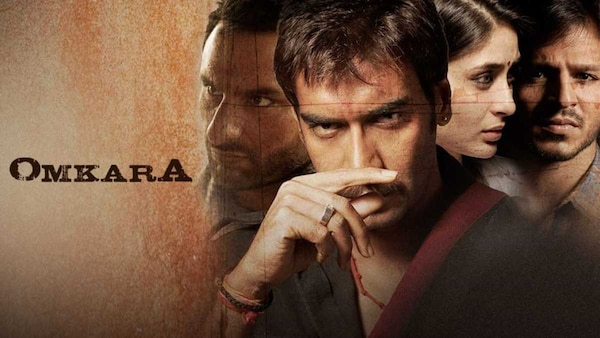Celebrating 17 Years of Vishal Bhardwaj's Omkara: A Landmark Shakespeare Adaptation
Omkara artfully adapts Shakespeare's Othello with powerful performances and soul-stirring music.

Last Updated: 09.42 AM, Jul 28, 2023
As Omkara completes 17 years since its release, we commemorate a cinematic masterpiece that impeccably adapts Shakespeare's timeless tragedy, Othello, to the rustic landscape of rural India. This 2006 crime drama, which Vishal Bhardwaj directed, continues to enthral viewers with its potent performances, soul-stirring music, and seamless integration of Indian cultural nuances.
Through the lens of jealousy, betrayal, and manipulation, Omkara stands tall as one of the best Shakespeare adaptations, a testament to the enduring impact of Bard's work on Indian cinema.
Omkara stands out as one of the best Shakespeare adaptations due to its remarkable faithfulness to the source material, William Shakespeare's Othello. Director Vishal Bhardwaj skillfully transplants the themes, character dynamics, and essence of the original play into a rural Indian setting. The film retains the core elements of jealousy, betrayal, and manipulation while seamlessly integrating Indian cultural nuances, making it a captivating rendition of Shakespeare's timeless tragedy.
The strength of any Shakespeare adaptation lies in the portrayal of its characters, and Omkara delivers on this front with extraordinary performances by the cast. Ajay Devgn's portrayal of Omkara (Othello) captures the character's complexity, vulnerability, and eventual downfall with immense conviction. Saif Ali Khan's portrayal of Langda Tyagi (Iago) is equally brilliant, depicting the cunning and manipulative antagonist with a nuanced performance. Each character is meticulously crafted, ensuring that they resonate with the audience just as much as their Shakespearean counterparts.
Vishal Bhardwaj masterfully weaves Indian culture, customs, and societal norms into the narrative, providing a fresh perspective on the classic tragedy. By setting the story in the heartland of India, Bhardwaj taps into the rich tapestry of Indian traditions and beliefs, adding depth and relatability to the characters and their motivations. This cultural fusion enhances the film's impact and makes it accessible to a diverse audience.
Vishal Bhardwaj, known for his proficiency in both filmmaking and music, infuses Omkara with soul-stirring melodies and poetic verses. The film's original soundtrack, which Bhardwaj composed, perfectly complements the story by enhancing the characters' emotions and ratcheting up the drama. The use of regional dialects and traditional musical instruments further enrich the cinematic experience, setting it apart as a truly unique and culturally immersive adaptation.
Omkara's visual brilliance is evident in its captivating cinematography, which captures the rustic charm and raw beauty of rural India. The film's imagery, combined with a gritty and realistic portrayal of the characters' lives, creates an immersive atmosphere that draws the audience into the world of Omkara. The authenticity of the setting, costumes, and overall production design adds to the film's appeal, making it an aesthetically pleasing and engrossing cinematic experience.
As Omkara completes 17 years since its release, it continues to stand tall as one of the best Shakespeare adaptations in Indian cinema. Vishal Bhardwaj's masterful direction, powerful character portrayals, seamless blending of Indian culture with Shakespearean drama, soul-stirring music, and rich cinematic aesthetics all contribute to the film's timeless appeal. Omkara remains a testament to the enduring impact of Shakespeare's work and its ability to transcend time, culture, and language.
About the author: Chandragupta is part human brain, part generative AI. The former provides intellect, while the latter does the heavy lifting of an artificial neural network. The name, if you haven’t already worked it out, is a backronym of ChatGPT.

 Premium
Premium